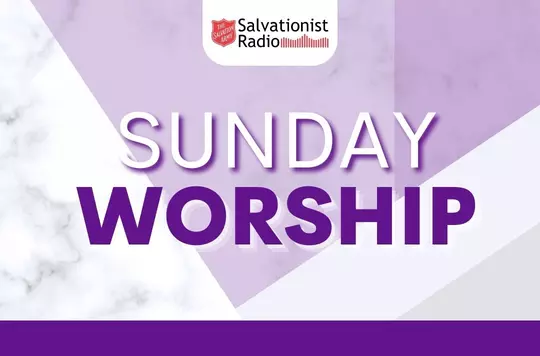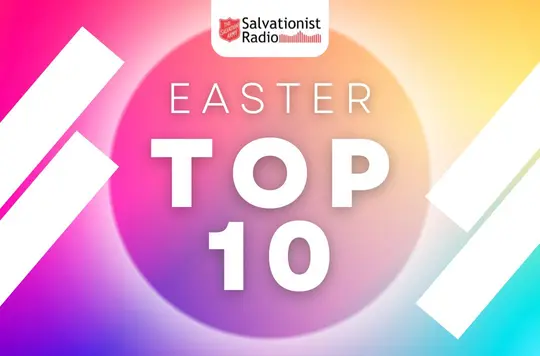17 April 2023
Is the word of God hidden in our hearts?
Captain Jennifer Gosling
Captain Jennifer Gosling encourages us to treasure God’s word and store it up ready for use.
Key text
Psalm 119 is perhaps most famously known for being the longest psalm, a fact that once saved a man’s life. George Wishart, a 17th-century bishop of Edinburgh, was waiting at the gallows for the inevitable, and he was permitted to choose a psalm to be read to him. He chose Psalm 119; the reader was only two thirds of the way through when a pardon was granted, allowing Wishart to live. It is to his benefit that he didn’t choose Psalm 117!
Psalm 119 might also appeal to literary buffs who enjoy carefully crafted writing, as it is an acrostic psalm taking the 22 letters of the Hebrew alphabet in order, with eight verses per letter, each verse beginning with that letter. Eastern Orthodox Church tradition claims that King David used this psalm to teach the young Solomon both his alphabet and the vital framework of the Torah for spiritual life. One could also be forgiven for thinking the author had an early copy of a thesaurus, as he finds more than 170 ways to describe the glory, enormity and purposes of God’s written word.
Pause and reflect
- Try crafting your own psalm of worship and wonder.
- Maybe you could write an acrostic psalm taking the letters ‘p-s-a-l-m’ as your starting point.
Verses 1 to 16 contain many verbs and calls to action in relation to our reading of the Bible. They urge us to: meditate, recount, consider, delight, praise, seek, rejoice, walk, follow and obey. This highlights to us the importance of not just skim reading but spending time soaking up the words, appreciating what they say to us, and then allowing them to make a difference to the way we live out our faith.
The ancient practice of Lectio Divina (‘divine reading’) has become increasingly popular in recent years. As short passages of Scripture are prayerfully read over and over, the reader focuses on particular words and invites the Holy Spirit to illuminate the words and speak through them. No study books are required for this exercise. In Colossians 3:16, Paul instructs: ‘Let the word of Christ dwell in you richly’ (New Revised Standard Version). This, like Psalm 119, encourages us to lift the words from the page and plant them deep into our hearts. You may recall Sunday school days when memory verses were taught, this being one way of embedding the truths of God’s word into our hearts and minds.
Pause and reflect
- Take some time today to sit with a Bible verse or passage, meditating on and delighting in it. How about trying to commit it to memory?
- Make Psalm 119:1–3 your focus for the next few days. Write it out and put it in places where you will see it regularly and learn it thoroughly.
Verse 11 says ‘I have hidden your word in my heart’, and it also gives us the rationale for doing so – ‘that I might not sin against you’. We embed the word of God into our hearts so that we are ready and able to stand when trials and temptations are set before us.
Jesus demonstrates the value of this in his own life when he is in the wilderness and is tempted by the Devil (see Matthew 4:1–11). On each of the three occasions when the Devil tempts him, Jesus responds with the words ‘it is written’, followed by quotes from Scripture. Jesus was clearly well read where the Torah was concerned, and because of this was able to overcome the challenges thrown before him.
When the heart is filled with the goodness of God and his word, then this leaves little room for anything else that shouldn’t be there. The word for ‘hidden’ in the original Hebrew means ‘to treasure’ or ‘to store’; Jesus had God’s word stored up in his heart, ready for use.
Pause and reflect
- Can you think of a time when words from the Bible have come to mind at a key moment for you or someone else?
- What were they and what effect did thinking or saying them have on the situation?
At Easter we often turn to the story of the road to Emmaus (see Luke 24:13–35), where two of the disciples are walking and talking together, having witnessed the events surrounding Jesus’ death and resurrection in Jerusalem. Jesus joins them on the journey and, in their conversation, they sorrowfully recount the incredible events of the previous few days.
They have yet to recognise with whom they are talking. Jesus eventually interjects, and ‘beginning with Moses and all the prophets, he explained to them what was said in all the Scriptures concerning himself’ (Luke 24:27). At this pivotal moment in the lives of these despondent disciples, Jesus was able to draw on the knowledge of the Scriptures that was hidden in his heart and explain to them what they had seen, heard and misunderstood.
The beauty of this story is that not only do the disciples hear ‘the word’, but they also hear it from the incarnate Word of God – Jesus himself. This powerful encounter was such that their hearts burned within them.
Pause and reflect
- Is the word of God so hidden in our hearts that we too can recall and recount God’s story to someone who desperately needs to hear it?
- How could you prepare yourself for such a moment?
Bible study by

Captain Jennifer Gosling
Corps Officer, Edinburgh City
Discover more

Devotions, articles and resources to help you journey through Lent and celebrate Easter.

Commissioner Anthony Cotterill reflects on what the resurrection of Jesus means for us today.

Following a listener poll, Salvationist Radio reveals its brass, vocal and contemporary worship Easter charts.

